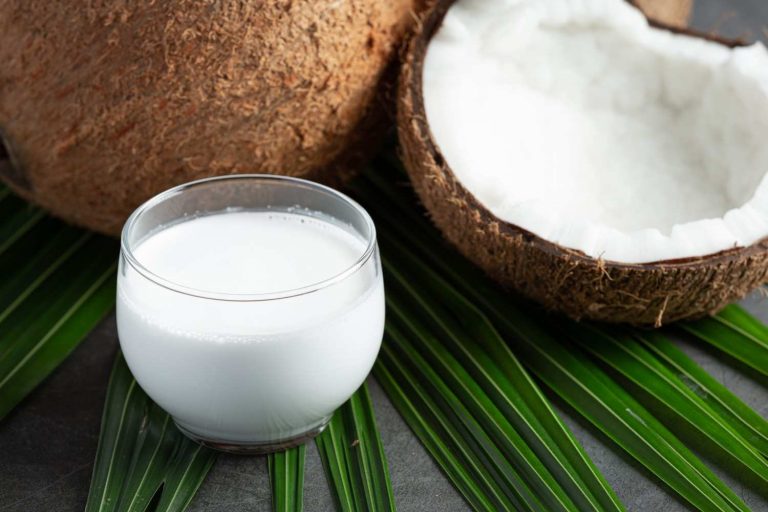4 Ways Sauerkraut Can Heal Your Gut Naturally
Midday comes with that familiar feeling—a gentle but persistent heaviness in your stomach, as if it’s been too long since you last refueled. You might reach for a snack, but what if the solution lies within a tangy, fermented dish? Sauerkraut is more than a vibrant addition to your meals; it can actually play a significant role in gut health. Here are four ways this traditional dish can help heal your gut naturally.
Contents
1. A Probiotic Powerhouse
Sauerkraut is a fermented food, which means it’s teeming with probiotics—beneficial bacteria that promote a healthy gut. These probiotics, primarily Lactobacillus, help maintain the gut flora balance. A study published in the Journal of Agricultural and Food Chemistry by Marco et al. (2017) indicated that regular consumption of probiotics can improve digestive health and enhance the body’s immune response.
When you consume probiotics, you’re not just adding to the army of good bacteria in your gut; you’re also creating a less hospitable environment for harmful bacteria. This can lead to reduced bloating, gas, and discomfort. However, it’s essential to remember that the effectiveness of probiotics can vary from person to person. Some individuals may experience significant benefits, while others might see little change. If you’re starting your journey with probiotics through sauerkraut, gentle experimentation could help you find what works best for your body.
2. Digestive Enzyme Production
One of the fascinating aspects of sauerkraut is its ability to assist in the production of digestive enzymes. Fermentation not only creates probiotics but also helps to break down food, making it easier for your body to absorb nutrients. According to a study conducted by Lee et al. (2016) in the Food Research International, fermented foods like sauerkraut can enhance digestion due to the presence of natural enzymes released during fermentation.
These digestive enzymes can help alleviate issues like constipation or heavy feelings after meals. By aiding digestion, sauerkraut enables your body to more effectively extract nutrients. However, it’s worth noting that if your body struggles with fermentation, you may need to introduce sauerkraut slowly into your diet. Beginning with a small serving can help assess your tolerance.
3. Anti-Inflammatory Properties
Chronic inflammation has been linked to various health complications, including gastrointestinal disorders. Sauerkraut contains several compounds that possess anti-inflammatory properties. A notable study by Kader et al. (2021) in the Journal of Nutrition found that fermented foods can help lower inflammatory markers in the body, potentially providing relief for those with gut-related issues.
Cabbage, the main ingredient in sauerkraut, is rich in antioxidants like vitamins C and K, which can also play a role in combating inflammation. However, while sauerkraut offers these benefits, it’s essential to integrate it into a holistic approach to health. Relying solely on one food won’t yield miraculous results. A balanced diet rich in fruits, vegetables, and whole grains, combined with sauerkraut, will create a stronger foundation for controlling inflammation.
4. Enhanced Nutrient Absorption
Another significant advantage of sauerkraut is its ability to enhance nutrient absorption, particularly in the gut. The fermentation process not only increases the bioavailability of certain nutrients but also enhances the absorption of vitamins and minerals. A 2019 study from Liu et al. in the Food & Function journal highlighted that fermented foods can lead to improved mineral absorption, particularly calcium and iron.
While the process of fermentation breaks down food into more digestible components, it also unlocks nutrients otherwise trapped in cell walls. This can aid in conditions where nutrient deficiencies are a concern. However, the way your body absorbs nutrients can be influenced by a variety of factors, such as overall gut health and individual biochemistry. Hence, again, maintaining a diverse and balanced diet alongside sauerkraut is pivotal.
FAQs
1. How much sauerkraut should I eat for gut health?
Start with about one to two tablespoons of sauerkraut per day. This amount allows your gut to adjust to probiotics without overwhelming it.
2. Is store-bought sauerkraut as effective as homemade?
While store-bought varieties can still provide benefits, opt for those labeled “raw” or “live” to ensure they contain active probiotics. Homemade sauerkraut often contains a higher concentration of beneficial bacteria.
3. Can sauerkraut help with conditions like IBS?
Many people with Irritable Bowel Syndrome (IBS) report improvements after incorporating fermented foods like sauerkraut into their diets. However, everyone’s gut is unique; consult a healthcare professional before making significant changes.
4. Are there any side effects to eating sauerkraut?
Some individuals may experience bloating or gas, especially if they’re not used to fermented foods. It’s best to introduce sauerkraut gradually to minimize gastrointestinal discomfort.
Conclusion
Including sauerkraut in your diet could become a simple yet powerful step toward improving your gut health. From providing essential probiotics to enhancing nutrient absorption, this fermented dish is a versatile ally for digestive wellness. However, as with all dietary changes, pay attention to how your body reacts. Embrace this tangy food, and you may just find that it contributes positively to your overall health journey.
References
-
Marco, M. L., Heeney, D., Franks, A., & Dodd, H. (2017). Health Benefits of Fermented Foods: The Importance of the Gut Microbiota. Journal of Agricultural and Food Chemistry. URL: https://pubs.acs.org/doi/abs/10.1021/acs.jafc.7b02526
-
Lee, W. S., & Paik, H. D. (2016). The Effects of Fermented Foods on Gastrointestinal Health: A Review. Food Research International. URL: https://www.sciencedirect.com/science/article/abs/pii/S0963996916311308
-
Kader, K., Bolhuis, D. P., & Moens, L. (2021). The Role of Fermented Foods in Reducing Inflammation: A Review. Journal of Nutrition. URL: https://academic.oup.com/jn/article/151/5/1309/5809899
-
Liu, Y., & Xu, Y. (2019). The Nutritional Value of Fermented Foods and Their Role in Improving Mineral Bioavailability. Food & Function. URL: https://pubs.rsc.org/en/content/articlelanding/2019/fo/c8fo01546j
Get Your FREE Natural Health Guide!
Subscribe now and receive our exclusive ebook packed with natural health tips, practical wellness advice, and easy lifestyle changes, delivered straight to your inbox.




